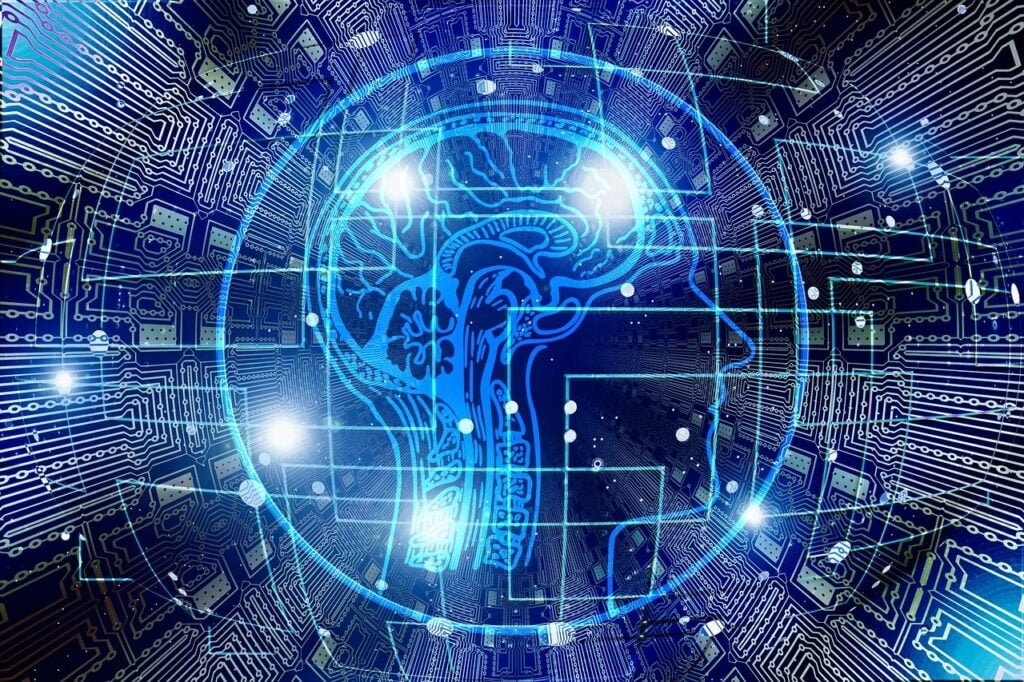
Introduction to the next revolution: artificial intelligence
We stand on the precipice of a new technological revolution, one that promises to reshape the very fabric of our lives. Artificial intelligence (AI), the convergence of advanced computing power, machine learning, and innovative algorithms, is poised to become the driving force behind this transformative change.
In this article, we will explore the profound impact that AI is set to have on various industries, from healthcare and education to finance and manufacturing. We will delve into the ethical considerations surrounding this powerful technology and uncover the exciting possibilities that lie ahead as we embrace the next revolution.
Understanding artificial intelligence, machine learning, and robotics
At the heart of this revolution is artificial intelligence, a field that encompasses a wide range of technologies and techniques. Machine learning, a subset of AI, enables systems to learn and improve from experience without being explicitly programmed. Robotics, another key component, integrates AI-powered systems with physical hardware to perform a multitude of tasks.
As these technologies continue to evolve, they are becoming increasingly sophisticated, capable of tackling complex problems and making decisions with a level of autonomy that was once unimaginable. The synergy between AI, machine learning, and robotics is creating new possibilities that are poised to transform every aspect of our lives.
The impact of artificial intelligence on various industries
Artificial intelligence in healthcare
In the healthcare industry, AI is already making a significant impact. From early disease detection and personalized treatment plans to robotic-assisted surgeries and virtual nursing assistants, AI-powered systems are revolutionizing the way we approach medical care.
By analyzing vast troves of medical data, AI algorithms can identify patterns and anomalies that might be missed by human practitioners, leading to earlier diagnoses and more effective interventions. Furthermore, AI-powered decision support systems can assist healthcare professionals in making informed choices, ultimately improving patient outcomes and reducing healthcare costs.
Artificial intelligence in education
The education sector is also undergoing a transformative shift, thanks to the integration of AI. Intelligent tutoring systems can provide personalized learning experiences, adapting to the unique needs and learning styles of each student. AI-powered virtual assistants can answer questions, provide feedback, and even grade assignments, freeing up educators to focus on more meaningful interactions with their students.
Moreover, AI-driven analytics can help educators identify areas where students are struggling, enabling them to tailor their teaching methods and provide targeted support. This personalized approach to education has the potential to revolutionize the way we learn, fostering a more engaging and effective learning environment for students of all ages.
Artificial intelligence in finance
The financial industry has been an early adopter of AI, leveraging its capabilities to streamline operations, enhance decision-making, and mitigate risks. AI-powered trading algorithms can analyze vast amounts of market data, identify patterns, and execute trades with lightning-fast speed and precision, outperforming human traders in many cases.
AI is also being used to detect and prevent financial fraud, analyze credit risk, and personalize investment portfolios. By automating repetitive tasks and providing data-driven insights, AI is helping financial institutions operate more efficiently, reduce costs, and provide better services to their clients.
Artificial intelligence in manufacturing
In the manufacturing sector, AI is revolutionizing the way products are designed, produced, and distributed. Predictive maintenance algorithms can anticipate equipment failures, allowing for proactive maintenance and reducing downtime. AI-powered robotics can automate complex manufacturing processes, improving precision, consistency, and efficiency.
Furthermore, AI-driven supply chain optimization can help manufacturers predict demand, optimize inventory levels, and streamline logistics, leading to cost savings and improved responsiveness to customer needs. As the integration of AI and manufacturing continues to evolve, we can expect to see even more innovative applications that enhance productivity, quality, and sustainability.
Ethical considerations of artificial intelligence
As the influence of AI continues to grow, it is essential to address the ethical implications of this powerful technology. Questions around bias, privacy, transparency, and accountability must be carefully considered to ensure that the benefits of AI are equitably distributed and the risks are mitigated.
Developers and policymakers must work together to establish robust ethical frameworks and governance structures that guide the responsible development and deployment of AI systems. This includes promoting transparency in algorithm design, implementing mechanisms for accountability, and ensuring that AI-powered decisions do not perpetuate or exacerbate societal biases.
Additionally, the potential impact of AI on employment and the workforce must be carefully managed, with a focus on retraining and upskilling workers to adapt to the changing job market. By addressing these ethical concerns proactively, we can harness the transformative power of AI while safeguarding the well-being of individuals and communities.
The future of artificial intelligence
The future of artificial intelligence is brimming with exciting possibilities. As the technology continues to advance, we can expect to see even more remarkable applications that transform the way we live, work, and interact with the world around us.
From autonomous vehicles and intelligent personal assistants to AI-powered medical breakthroughs and sustainable energy solutions, the potential of this technology is vast and far-reaching. As AI systems become more sophisticated, they will be able to tackle increasingly complex problems, unlock new discoveries, and enhance our overall quality of life.
However, the realization of this future will require a collaborative effort among policymakers, industry leaders, and the public. By fostering a culture of innovation, ethical responsibility, and public-private partnership, we can ensure that the transformative power of AI is harnessed for the greater good of humanity.
Conclusion: Embracing the next revolution
The rise of artificial intelligence is undoubtedly the next revolution that will shape our world. As we stand on the cusp of this transformative change, it is essential that we embrace the possibilities and navigate the challenges with foresight and diligence.
By understanding the impact of AI across various industries, addressing the ethical considerations, and envisioning the exciting future that lies ahead, we can position ourselves to harness the full potential of this revolutionary technology. It is time to embark on this journey, to innovate, to collaborate, and to shape the world we want to live in.Ready to explore the transformative power of artificial intelligence? Sign up for our newsletter to stay informed about the latest developments and insights in this rapidly evolving field.
More : Virtual Reality and Augmented Reality: From Science Fiction to Present Reality – All Media Trend





2 Comments
Pingback: Virtual Reality and Augmented Reality: From Science Fiction to Present Reality - All Media Trend
Pingback: Technology in business, artificial intelligence in business, improving productivity - All Media Trend